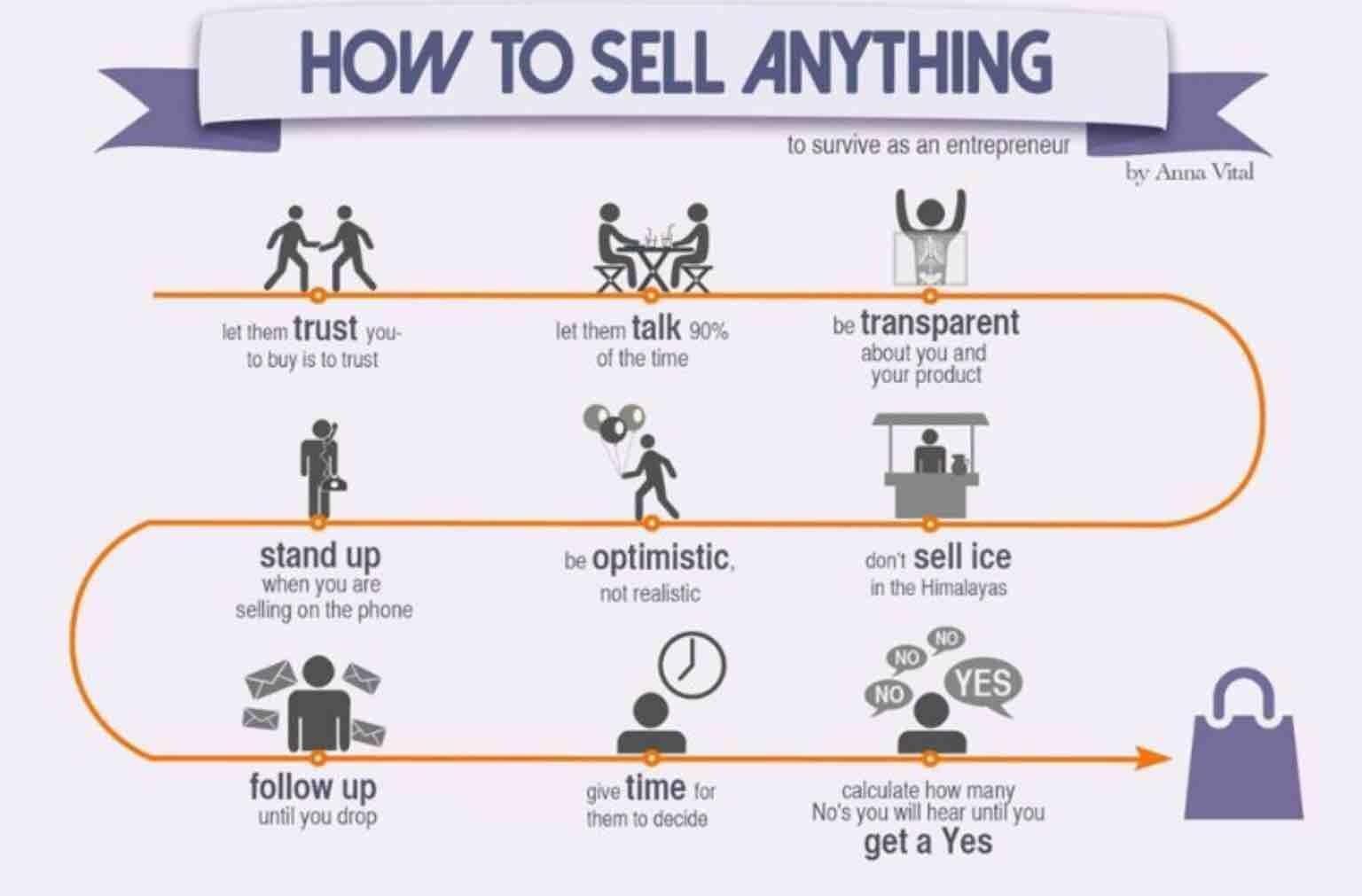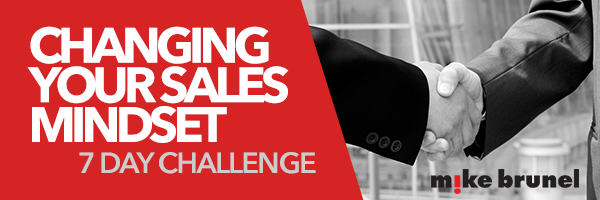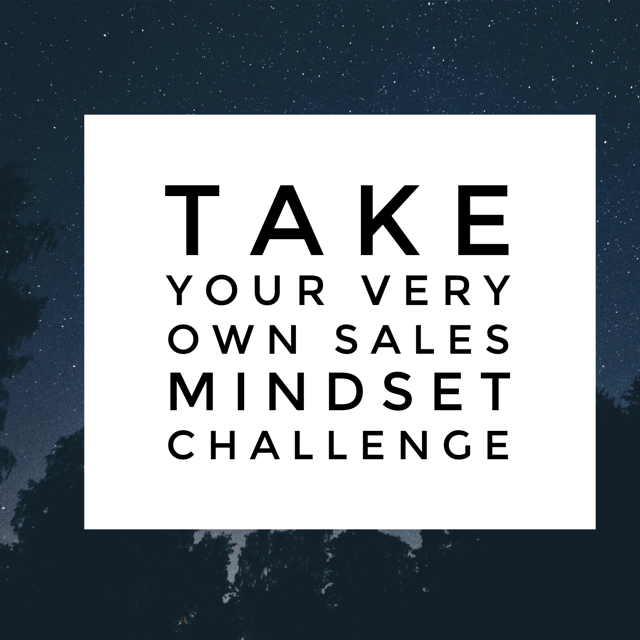by Mike Brunel | Aug 30, 2022 | Strategy, Uncategorized

In my post What you can Learn about Sales Training from a Cab driver in London. I promised I would give you some practical tools and ideas that you can use in your business using this SWOT model. Here they are.
Strengths are where the secrets are.
The question for your business, then, is how do you know what you—and your salespeople—don’t know? One way to develop insight into your own company is to use a SWOT analysis of your products and services.
The SWOT framework comes from Albert Humphrey, who tested the approach in the 1960s and 1970s at the Stanford Research Institute. Developed for business and based on data from Fortune 500 companies, the SWOT analysis has been adopted by organisations of all types as a decision-making tool.
As its acronym implies, a SWOT analysis examines four elements:
- Strengths: Internal attributes and resources that support a successful outcome.
- Weaknesses: Internal attributes and resources that work against a successful outcome.
- Opportunities: External factors the project can use to its advantage.
- Threats: External factors that could jeopardise the project.
When I do my sales training and coaching sessions with my clients, I carry out a simple audit to discover a SWOT analysis of their sales process:
Strengths:
- What are you the best at?
- Why do customers buy from you?
- What are your competitors’ benefits?
Weaknesses:
- Where do you need to improve?
- Are there any gaps in product lines?
- Should you add a guarantee?
- What’s preventing you from making more sales?
Opportunities:
- How can you take advantage of your new knowledge?
- Is there something unique you have to offer?
- What do these facts tell you about the future?
Threats:
- Is this the right product or service for the current market?
- What happens when the market changes?
- Do you need to evaluate your clients?
- Do you have a sales mindset?
- Do you train well and consistently?
- Does your team believe in your mission?
Evaluating your offerings helps you develop the insight necessary to sell them. Let’s look at one example of how insight, or lack of it, affects everyday sales interactions.
Your clients sometimes know more than you.
Imagine someone comes to your store intending to buy. They already have an interest in the product. They quite reasonably make an inquiry with the salesperson. This is where the relationship between seller and buyer can quickly break down. If the customer expresses interest in an item and the person who can sell it to them doesn’t demonstrate enough insight, the sale will drop dead right there. The once-promising customer will walk right back out that door.
For instance, suppose an appliance store supervisor has only trained the sales staff with minimum product knowledge. The salespeople on the floor know that a washing machine has a lid at the top, and it opens when you press a button, and that’s it. Your customers already know these basic facts and a lot more. The Internet now allows people to research your product thoroughly. If you are not careful—if you don’t always have some sort of valuable knowledge to add—you will lose the sale.
Plan your story about your product
Work out your strengths, weaknesses, and opportunities ahead of time and try to match them up against your competition. You want to be able to convince the customer of the benefit of choosing your product over any other.
SWOT Analysis Questions:
- What are the three key benefits of your product?
- What is the immediate benefit of using the product?
- What information is this benefit based on? What’s the evidence?
- Is this product as good as it sounds?
- Does it have some sort of guarantee?
- Is it unique?
- Have I asked why my clients buy from me?
- If a prospective client bought this product from someone else, why?
- Why did a prospective client buy something similar in the past? Was it the delivery? Was it free shipping?
Asking these questions helps you formulate the best way to demonstrate your product knowledge. When a person buys a mobile phone, what does your store or service offer that differs from the store down the road? Ask yourself what problem you are trying to solve.
You’re not selling a phone; you’re selling a solution. Does the customer want faster download speeds? Great, because your company happens to have access to the speediest network around. Do they need a predictable monthly bill? Tell them about your recently launched steady rate package. Share those facts, and chances are the customer will buy from you, not any of the other six phone stores in town.
Do they need a predictable monthly bill? Tell them about your recently launched steady rate package. Share those facts, and chances are the customer will buy from you, not any of the other six phone stores in town.
Someone reading this blog might have ten, twenty, or only two employees. However large or small your staff, you need to train them to research your product’s strengths. Teach them to look for the key benefits and why people buy them.
by Mike Brunel | Aug 22, 2022 | Strategy, Uncategorized

This week’s blog talks about the importance of product knowledge or Insight.
In the context of sales, Insight means understanding your product. It also means understanding your own business’s strengths and weaknesses.
London Black Cabs.
For example, London’s traditional black cab drivers rely on “The Knowledge” to set them apart from other transportation services.
Pay a visit to London, and a black mini cab will probably be one the first things you will see. London taxi drivers are almost as famous as the black cabs they drive.
Their fame stems from their incredibly comprehensive knowledge of the city. Hail down a black cab in London, and you can be assured that the driver will find the shortest route to your destination without the aid of any technology.
Is it better than Uber?
London taxi drivers go through stringent training to obtain their licenses. They need to pass “The Knowledge” test; studying for it is often likened to having an atlas of London implanted into your brain.
To become an All-London taxi driver, you need to master no fewer than 320 basic routes, all of the 25,000 streets scattered within the basic routes, and approximately 20,000 landmarks and places of public interest within a six-mile radius of Charing Cross.
It takes the average person between two and four years to learn “The Knowledge”. This education is a big investment, but the training sets this service apart from the competition, whether GPS gadgets or Uber drivers.
In fact, on the ground, a black cab driver will always out-perform the Uber driver. Their extensive, specific knowledge offers an opportunity to reposition themselves as the ultimate experts.
Pay for what you want!
Customers are willing to pay for this good service, and the only way to make it this good is to have true insight into your product.
The question for your business, then, is how do you know what you—and your salespeople—don’t know?
This is where sales training and sales coaching comes in.
One way to develop insight into your own company is to use a SWOT analysis of your products and services.
The SWOT framework comes from Albert Humphrey, who tested the approach in the 1960s and 1970s at the Stanford Research Institute. Developed for business and based on data from Fortune 500 companies, the SWOT analysis has been adopted by organisations of all types as a decision-making tool.
As its acronym implies, a SWOT analysis examines four elements:
- Strengths: Internal attributes and resources that support a successful outcome.
- Weaknesses: Internal attributes and resources that work against a successful outcome.
- Opportunities: External factors the project can use to its advantage.
- Threats: External factors that could jeopardise the project.
Next week’s blog will give you some practical tools and ideas that you can use in your business using this SWOT model.
Until then, good selling.
PLUS: WHENEVER YOU’RE READY…
- Here are 4 ways I can help you make more sales in your business – whether your business is big or small.1. Want to become a Sales Mindset Blueprint Member? You get access to an exclusive coaching session with me and full access to my sales programme every month. Get the deets here.
- Try the new ‘7 Days to Sales Success’ framework. Make more sales in 7 days—the framework of everything you need to start making more sales in your business. The Sales Success Framework uses a simple 7-day challenge. Click here to find out how you can grow your business by making more sales.
- Join our private Facebook group – The Sales Mindset Inner Circle. Get all the latest up-to-date sales ideas. Every week we do Facebook Live updates on all things sales. Tips, ideas, free coaching, and much more. Join me by clicking here
- Could you work with me one-on-one? If you’re a small or large business owner or in professional services, you might have a few strategies, tactics and tools away from doubling your lead flow, revenue and impact. Please jump on a FREE 15-minute brainstorming call with me by clicking here.
Mike
Image courtesy of Anna Vital.
P.S
Coming soon Changing Your Sales Mindset- 7 Day Challenge

by Mike Brunel | Aug 15, 2022 | Leadership, Sales

What makes great salespeople great? The common misconceptions about salespeople can be tough to overcome because they are ingrained in our culture. It helps to see what successful salespeople look like. Most great salespeople aren’t all that slick on the surface, but they are great at discovering and solving problems. What makes them different?
I think there are 12 traits that make a successful salesperson here, which are 4 from my book.
Beliefs, Traits, and Habits of the Best Salespeople:
Desire. The desire to be successful is the number one feature of excellent salespeople. Folks with a strong drive to succeed have built upon a history of success.
They may have been good at sports or bringing up a family.
They know what it means to care deeply about the goal and go for it.
Desire leads them to discover everything they can about their product and competitors’ products. Their knowledge is one of their strongest assets.
Motivated salespeople will compete against themselves, not others. They strive to beat their last target, cultivate additional clients, and achieve business.
2. Self Belief. Effective business people have a very strong self-belief. When they experience rejection, they understand that it is situational. A single loss does little or damages their core self-esteem.
Instead of getting down on themselves, people with high self-esteem draw on all their knowledge and past mistakes to correct their course and move on.
A salesperson can achieve strong self-belief by developing a passion for their product or service. If you can turn your passion for your business into a core belief, you can sell your product to anyone. That is a sales mindset guarantee.
3. Persistence. Persistent folks do not give up easily, if ever. They see problems not as dead ends but as surmountable obstacles. How many rejections can you weather?
Numbers coming out of the Dartnell Corp. in the United States show that a sale in today’s market often goes through only after the tenth “No.” You read that right. The tenth “No.” We are up against a tough economic environment, and unless we are persistent and believe in what we sell, we will give up after about the third time someone tells us “No.”
Learn when to back off and not overplay the persistence card, but do not ever roll over and give up. In this brave new world where the power is increasingly in the hands of the buyer, we must create marketing and sales strategies to overcome our reluctance to try one more time.
4. Purpose. Many great salespeople find greater purpose in their work than simply completing the job. They might want to help their clients, fellow workers, and teammates build a great business environment to work in, or they may find value in training others by passing on their knowledge to employees.
Motivations can be as basic as feeding the family, affording that extra vacation, or getting the kids through college.
To folks invested in these outcomes, money and success are by-products of their efforts.
This is an important distinction, for finding meaning in your work will keep you balanced in your business. Work cannot be your sole purpose.
We hear many stories about business people burning out by dedicating themselves solely to their businesses, day in and day out. In the long run, this approach provides diminishing returns. Remember why you are working so hard.
Take The Sales Mindset Challenge here and discover how you rate your sales mindset. You might be surprised. It’s a simple list of questions that rate your beliefs and traits. Have fun.
Good Selling.
PLUS: WHENEVER YOU’RE READY…
- Here are 4 ways I can help you make more sales in your business – whether your business is big or small.1. Want to become a Sales Mindset Blueprint Member? You get access to an exclusive coaching session with me and full access to my sales programme every month. Get the deets here.
- Try the new ‘7 Days to Sales Success’ framework. Make more sales in 7 days—the framework of everything you need to start making more sales in your business. The Sales Success Framework uses a simple 7-day challenge. Click here to find out how you can grow your business by making more sales.
- Join our private Facebook group – The Sales Mindset Inner Circle. Get all the latest up-to-date sales ideas. Every week we do Facebook Live updates on all things sales. Tips, ideas, free coaching, and much more. Join me by clicking here
- Could you work with me one-on-one? If you’re a small or large business owner or in professional services, you might have a few strategies, tactics and tools away from doubling your lead flow, revenue and impact. Please jump on a FREE 15-minute brainstorm call with me by clicking here.


by Mike Brunel | Aug 10, 2022 | Sales
Harnessing the power of Testimonials
At least once a month, at my place, on a Friday night, my family will have to make a major decision: ‘What takeaways are we going to have tonight’?
A third-world problem, right?
An old ritual from days gone by.
I am sure the Friday takeaway ritual came from my own family when all of us would pile down to the fish and chip shop, and get to choose between a sausage, hot dog and fish with a few chips thrown in, then wait in the car eating them, while Mum and Dad nipped off to the pub for a quick drink.
New experience
In our family now we might want to try something different and go out to a café or restaurant.
When that happens, the question always comes up ‘what’s new in town or ‘, what was the name of that place that my mate Dave was talking about last week’?
Following this, we’ll call or text Dave to ask him what the restaurant was called because we know he’s pretty reliable with good food!
Why we need assurance – Power of Testimonials
What people say about you is 10 times more powerful and believable than what you say about yourself.
Deep down, Dave would not recommend that restaurant unless he enjoyed it. He is telling you from his own experience, which is very powerful.
You have your interests at heart.
It’s much harder to sell something to someone because you naturally have your interests at heart.
What your clients may want is another way to make a decision. This is why an opinion from a third party could be very influential, just like Dave influenced my decision on a restaurant.
The point is that getting someone to recommend you helps a lot. If it does not work out, you can always blame Dave- no, just kidding!
Create and use testimonials
There are a few tips I’ve come across in my time about receiving great testimonials, but one stands out as pretty crucial; be specific.
The more specific you are about the outcome you want, your endorsement will be targeted.
Let me give you an example. If you ask a client for a testimonial, ask this way.
‘Hi John, can you describe the one or two most important benefits you’ve gotten the most from working with us… please explain specifically what you’ve gained from the experience:
The second one I often ask is: ‘Describe in Detail What Part of Your Experience with us made you the happiest?’
This question taps into the emotional side of the experience, and that is where you will understand what drove your clients to use you in the first place.
In summary, be specific, and don’t forget to ask for their thoughts around the emotional experience..
Have a great week, see you soon.
Good selling.
Mike
PLUS: WHENEVER YOU’RE READY…
- Here are 4 ways I can help you make more sales in your business – whether your business is big or small.1. Want to become a Sales Mindset Blueprint Member? You get access to an exclusive coaching session with me and full access to my sales programme every month. Get the deets here.
- Try the new ‘7 Days to Sales Success’ framework. Make more sales in 7 days—the framework of everything you need to start making more sales in your business. The Sales Success Framework uses a simple 7-day challenge. Click here to find out how you can grow your business by making more sales.
- Join our private Facebook group – The Sales Mindset Inner Circle. Get all the latest up-to-date sales ideas. Every week we do Facebook Live updates on all things sales. Tips, ideas, free coaching, and much more. Join me by clicking here
- Could you work with me one-on-one? If you’re a small or large business owner or in professional services, you might have a few strategies, tactics and tools away from doubling your lead flow, revenue and impact. Please jump on a FREE 15-minute brainstorm call with me by clicking here.

by Mike Brunel | Aug 1, 2022 | Sales
Mindset can make all the difference in problem-solving.
Stanford University psychologist Carol Dweck, a leading expert in motivation and psychology and author of the book Mindset: The New Psychology of Success, discovered that everyone has one of two mindsets—fixed or growth.
Her work confirms what I have seen in sales over the years: people tend to have either a fixed or a growth mindset. Why is this an interesting finding? Which mindset do you think leads to more success in sales?
Is Your Sales Mindset Set in Stone?
Consider the fixed or closed mindset as it applies to sales. If you have a fixed mindset, you might say certain things to yourself that freeze your thinking in one position.
Some of these things I have heard repeatedly throughout my sales career. Do you ever hear yourself saying these things to yourself?
- Sales is hard.
- Salespeople are born.
- I can’t sell!
- I tried sales once, and it never worked.
- I will look stupid if a client says no.
- I have to win or lose.
- Will I succeed? Probably not.
- I hate sales and will never be any good at it.
Chances are you have thought about more than one of these things in your career. With a fixed mindset, you see things only in black and white. In your mind, you hear words like “win or lose,” “right or wrong.” You assume things have always been done one way and nothing will change. This mindset, while understandable, may not work well for you if you sell a product or service.
Growing your Business
On the other hand, you may think differently if you have a growth mindset. More and more often, you will catch yourself saying things like:
- Sales is easy.
- Salespeople are made, not born.
- I can’t sell . . . until the next opportunity.
- I tried sales once, but what did I learn while it was challenging?
- I need to make some more mistakes to learn.
- I win, lose, or get the opportunity to go back again.
- If I succeed—great! If I fail, what did I learn?
What if you could adopt this way of thinking, what Carol Dweck calls the “growth mindset” or “potential mindset”? It might help you push through limiting attitudes toward many things in your life or business. It might dramatically change your life. If you can catch yourself in your fixed mindset, you will start to get results much quicker. I promise.
It may be daunting to change the way you think about things. How can you do that?
- Look for opportunities to grow every day. When you begin to take up a growth mindset, you will find that you are failing if you are not learning new things. Challenging yourself to learn just one or two new things daily will build a growth mindset.
- Deal with failure and setbacks. Planning is an important part of growing. However, we do not always achieve all of our goals. Instead of beating ourselves up, look in a different direction and start again.
- Grow by doing. Ask yourself, what can I do differently? Apply a different approach to a problem and see what happens.
Download our free test- How’s my Mindset around Sales?
You will instantly discover how you rate your business’s sales and influencing department.
Good Selling.
Here is an audio extract from my book






